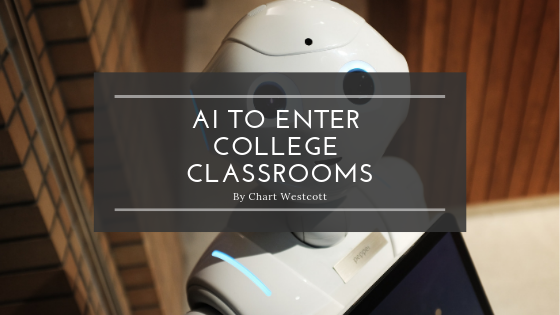Artificial intelligence technology is a continually growing field with advancements being made each day. Not to mention, the production of robots around the world is increasing very quickly. A common question among many workers in different industries is whether they will still have jobs in the future or be replaced with robots. As machine learning and AI continue to update and revamp the algorithms and technology, this could become more and more of a reality.
With the rapid pace we are moving at now, especially within the UK, it is said that by 2030 many professionals will be put out of work due to AI machines and robots taking over. One of the professional industries that is predicted to fall under this category is higher education. Many would think that due to the nature of the position that this wouldn’t be a profession challenged by AI, but in fact, it is going to have a very significant one. New technology is continuously learning and said to be able even to begin teaching in the coming years.
Most are aware of the rise in artificial intelligence and digital systems already taking over the realm of higher education. This is present in records systems that have become entirely digitized, online courses that can be done through webinars, video chats, etc.,as well as systems for academic work that are all done through a digital system rather than completing tests in class or handing in papers that weren’t done online.
With where we currently are in research and the development stages, robot teachers taking over a lot of the education profession will be far down the road. However, in Germany, they rolled out the first robotic teaching assistant just this year. The robot assists during lectures and can perform tasks such as gauging how students are doing, what type of help they need, and even giving them tests to take. He will still need to continue undergoing improvements before he can function properly and perform all the tasks of a teacher.
Although robot teachers are a substantial possibility of the future, AI is beginning even to revamp the way teachers interact and communicate with students. As previously mentioned, this is done through online communication tools and other digital methods to improve the education system and the overall education students will receive in the future.
One of the most significant ways artificial intelligence and robotics will work towards our advantage is by creating learning that is specific to each individual where they can learn how each program can be improved for future growth. To some, it can be frightening to think robots could one day take over education as a whole, but working in tandem with AI, robots, and human educators can revamp the way we learn.



